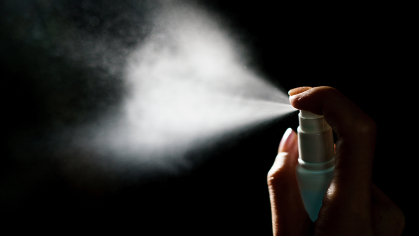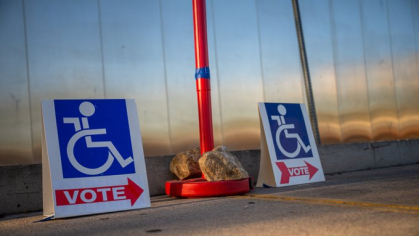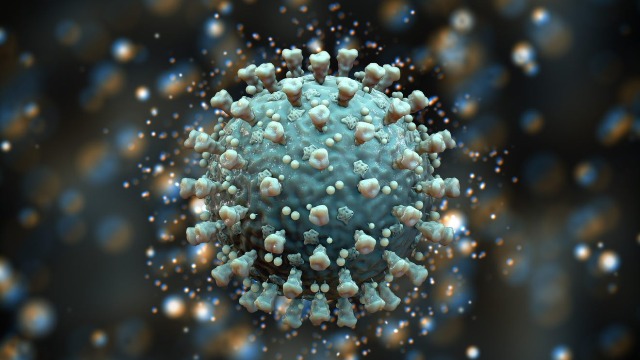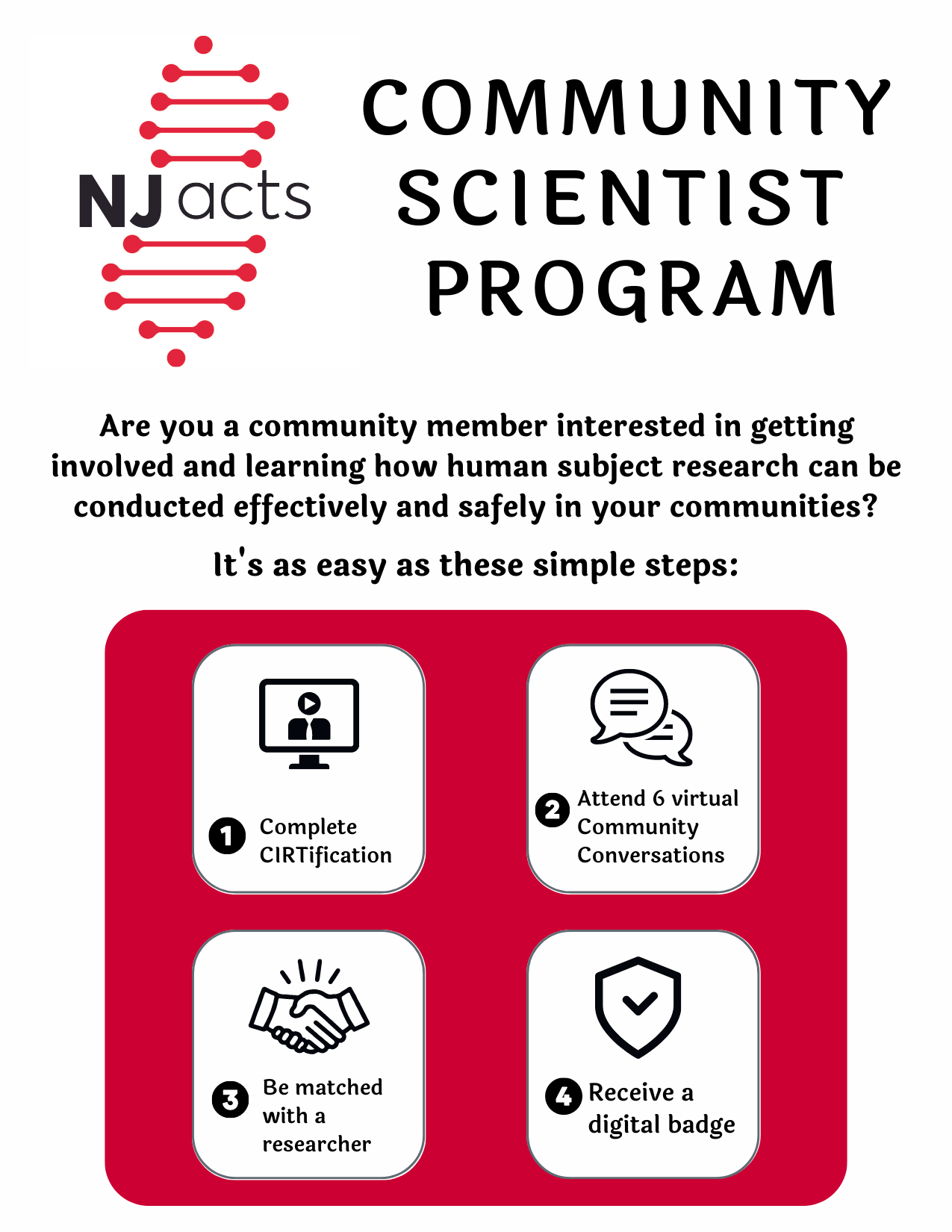180+ networks across 21 NJ counties
COMMUNITY ENGAGEMENT CORE OVERVIEW
NJACTS draws leading academic, industry and community groups together to understand and address the health needs of New Jersey. Central to this is engagement with our community to ensure that our efforts respond to their priorities. Our goal is to conduct research with the New Jersey community, in the community and for the community, and yet, have impact beyond our state’s boundaries.
Stay in Touch!
Join RCommunity!
Join Rutgers Health Service Corps!
Empowering Community-Based Research
Through Cultural and Linguistic Collaboration
- Navigating interpreter-mediated encounters
- Effective translation for research
- Understanding cultural nuances in literacy, trust, and belonging
Through collaboration across disciplines and leveraging expertise within and beyond Rutgers, CrEER ensures that research is inclusive, culturally relevant, and impactful both locally and globally.
👉 Discover how CrEER is shaping the future of community-based research here.
Association for Clinical and Translational Science (ATCS) Membership for Community Members
Did you know that community members are eligible to become members of ACTS through their affiliation with NJ ACTS?
Community members are able to access ACTS’ member benefits, including:
- Discounted registration to the annual Translational Science meeting
- Opportunities to participate in Special Interest Groups and Committees
- Access to the community platform website and more!
Resource for Investigators – CTSA Compendium of D&I Catalogs
Dissemination and implementation (D&I) research focuses on translating evidence-based interventions into real-world settings to improve health outcomes in the broader community.
An open-source CTSA Compendium of D&I Catalogs has been developed by the Clinical & Translational Science Awards (CTSA) Program’s “Advancing Dissemination and Implementation Sciences in CTSAs” working group to support investigators at any stage of their D&I skill-building journey. It provides a curated list of resource catalogs relevant to the conduct of D&I science. The materials include frameworks/theories/models, methods/measures, funding resources, practice resources, training, and health equity resources. Click here to learn more.
CIRTification – A New Alternative to CITI for Community Partners
The rollout of CIRTification at Rutgers has begun. The CIRTification program provides research ethics training alternative for individuals in community organizations, with limited understanding of conducting human research and protecting potential research participants. This option provides training that focuses on establishing the skills in community partners to conduct human subject research effectively and safely in their communities.
To learn more about the program at Rutgers, please visit this link CIRTification.
NJ ACTS COMMUNITY SCIENTIST PROGRAM
This program is designed to provide researchers with rapid feedback from expert community members to ensure their research projects are culturally appropriate and relevant to the community.
PARTICIPATE IN OUR NEXT COHORT!
For more information, please contact njactscommunity@rwjms.rutgers.edu
NJ HEROES TOO
Through the ongoing New Jersey Healthcare Essential Worker Outreach and Education Study – Testing Overlooked Occupations (NJ HEROES TOO), we have gained a wealth of data on COVID-19’s effects, gleaned valuable learnings on attitudes toward testing and vaccines, and improved COVID-19 awareness in underserved communities.

Community Blog

Mental Health First-Aid Training May Enhance Mental Health Support in Prison Settings.
According to Rutgers Health researchers, training correctional officers in Mental Health First Aid (MHFA) for adults, a 7.5-hour national education program from the National Council of Mental Wellbeing, may help provide them with the necessary skills to effectively...

Activity in a Room Stirs up Nanoparticles Left Over from Consumer Sprays.
Common household products containing nanoparticles – grains of engineered material so miniscule they are invisible to the eye – could be contributing to a new form of indoor air pollution, according to a Rutgers study. In a study published in the journal Science of...

Research & Innovation Racist and Heterosexist State Policies and Policing May Be Increasing Black Suicide Risk.
Discriminatory legal policies and policing that benefit white heterosexual people may be fueling suicidal ideation and behavior within Black LGBQ communities, Rutgers Health researchers have found. While suicide rates are decreasing among white Americans, trends for...

Three-quarters of New Jerseyans Familiar with Proper Guidelines to Store and Dispose of Medications, Opioids and Edibles.
A majority of New Jerseyans are at least “somewhat” familiar with storage and disposal of opioids and other medications, and less than 3 in 10 report that they or a loved one has been prescribed an opioid as pain medication in the past two years, according to the...

Elections Have Gotten More Accessible for Disabled Voters, but Gaps Remain.
In 2018, Kenia Flores, who is blind, voted by mail in North Carolina because she was attending college out of state. Had she been able to vote in person, she could have used an accessible machine. But voting absentee, her only option was to tell another person her...

NJACTS Community Engagement Core COVID-19 Resources
The situation around the current spread of COVID-19 is changing rapidly. We have compiled resource links for the general community highlighting local resources across New Jersey, ways to get involved, and mental and physical wellness. Visit our COVID-19 page for...



